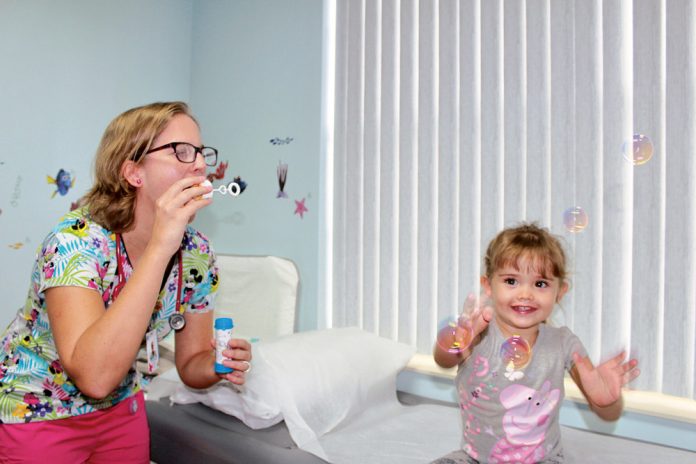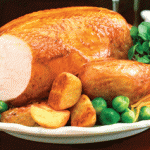It may seem to parents that their child is always getting some form of sniffles, itch or ache, and it’s hardly surprising given factors such as the close confines of school and immune systems which are still developing.
Luckily, most childhood ailments are not serious and pass relatively quickly. Here are a few common maladies you may experience in a household with children.
Common cold
Viral infection of nose and throat. Includes viruses such as adenovirus, parainfluenza, RSV. A child may get 6-8 or more colds a year due to the hundreds of cold virus strains and the lack of immunity in young children. They will get fewer colds as they get older.
Symptoms: Nasal congestion, runny nose, clear nasal discharge that thickens and turns yellow or green. Other symptoms may include fever, sneezing, coughing, lack of appetite, irritability, trouble sleeping.
Treatment: Plenty of fluids. Saline drops can loosen stuffed noses. Use children’s paracetamol or ibuprofen to ease fever or discomfort. Wash hands regularly to stop spreading. Over the counter cough and cold remedies should not be given to children under 7.
Prevention: Viruses that cause colds spread through air and close contact. There is no vaccine to protect against the common cold. Reduce the risk of contracting one by regularly washing hands with soap and water, avoid touching your eyes, nose and mouth with unwashed hands, and stay away from infected people. If your child has a cold, keep them at home and avoid them having close contact with others.
Influenza
A contagious respiratory illness caused by the influenza virus which infects the nose, throat and lungs. Flu can be very dangerous for children. Hits Cayman hardest between November and February.
Symptoms: Possible fever, cough, sore throat, runny or stuffy nose, muscle aches, headaches, fatigue, possible vomiting and diarrhoea. Systemic symptoms predominate – hard to differentiate from other respiratory virus.
Treatment: Rest and fluids. Contact your doctor. Antiviral drugs may be prescribed and are most effective when used in first 24-48 hours of illness. Be alert for emergency warning signs such as fast or difficulty breathing, bluish lips or face.
Prevention: Flu vaccinations are available for those over 6 months of age, and especially important for children at high risk of complications from the flu, (i.e. those with chronic illnesses such as asthma, sickle cell anaemia, cerebral palsy) and those who live with them.
As well as the vaccine, avoid those who are sick, or avoid others if you are sick. Cover coughs and sneezes, preferably into the elbow pit/antecubital fossa, wash hands regularly, avoid touching eyes, nose and mouth, and clean possibly contaminated surfaces.
Hand Foot and Mouth
A contagious viral infection which presents itself with mouth sores and a rash on hands, feet and sometimes buttocks. Primarily affects children younger than age 10, and usually under 5. Children at daycare and school are susceptible due to close contact with other children. Immunity is developed as children get older however it is possible for adults to get the disease.
Symptoms: Incubation period (period from initial infection to fever, sore throat, loss of appetite, irritability. Mouth ulcers and rash appearing a few days after initial symptoms. Rash may blister.
Treatment: There is no cure for hand foot and mouth and the disease runs it course within 7 – 10 days. Wash hands frequently to reduce risk of infecting others. To alleviate symptoms drink lots of fluids, consume soft foods, take paracetamol or ibuprofen to ease pain due to mouth ulcers.
Prevention: Wash hands frequently, disinfect common areas, teach good hygiene to children, and keep affected children out of childcare until fever and mouth sores have disappeared.
Croup
An infection of the upper airway which obstructs breathing. Typically occurs in younger children and can usually be treated at home. If symptoms last beyond 3-5 days doctors may prescribe medication, or hospitalisation in severe cases.
Symptoms: Cold-like symptoms including fever, runny nose and cough developing into barking cough that sounds like a seal, hoarse voice, difficulty breathing, rasping sound when breathing. Croup symptoms are usually worse at night.
Treatment: Croup usually gets better on its own within 3 – 5 days. Keep the child comfortable by staying calms so as not to distress them which could worsen breathing. Sitting upright may make breathing easier, offer fluids and encourage rest. Try fever reducers if child has a fever. Avoid cold medicines as they aren’t recommended for children. Cough medicines will not help croup.
Prevention: Frequent hand washing, frequently wash toys in hot soapy water if infected child has had it in their mouth, avoid close contact with people with coughs, discard dirty tissues immediately.
Constipation
Constipation is common in childhood. May be due to lack of fibre or fluids, or issues with toilet training, or anxiety about life changes or environmental changes.
Symptoms: If for more than 2 months, child does not poo at least three times per week, poo is large, hard and difficult to push out, or poo looks like rabbit droppings or pellets, pain on passage of stool, faecal withholding, stool large enough to block toilet, voluntary or involuntary passage of faeces outside of toilet trained contexts in children who are four years or older.
Treatment: Treatment varies by age and severity of constipation so talk to your healthcare practitioner.
Prevention: Ensure child has enough fluids – especially water, as well as a variety of foods including sources of fibre. Encourage physical activity and regular visits to the toilet. Keep toilet visits stress free and encourage proper positioning, with feet flat on the floor or a stool.
Chickenpox
Mild infectious disease. Incubation period is 8-21 days from contact with infected person. Child is infectious from 1-2 days before rash appears, until all blisters have crusted over.
Symptoms: Appear 1 – 3 weeks after infection. Feeling unwell, red rash and fever. The small, flat spots appear on chest, back, neck or head before spreading, becoming blisters and finally scabs. The symptoms usually last around 10 days.
Treatment: No cure exists. Give lots of fluid and use paracetamol for discomfort. Calamine lotion and antihistamines can relieve itchiness. Try to discourage child from scratching as this increases risk of scarring.
Prevention: Keep child out of school or daycare when spots appear until all blisters have crusted over. Keep child away from anyone who’s pregnant or trying to get pregnant, or those with weakened immune systems.
Chicken pox vaccines are available for children 12 months and older, but does not confer perfect resistance.
Ear Infections
Ear infections can be common in children and may follow a cold and may cause fever. Most are caused by viruses which cannot be treated with antibiotics.
Symptoms: Pain in the ear, high temperature, fatigue, difficulty hearing, ear discharge, pressure in the ear, itching in and around the ear. Babies and toddlers may pull or rub their ear, may not react to some sounds, and may lose their balance. May have fever, irritability, crying, difficulty feeding, restlessness at night, cough.
Treatment: Most ear infections get better on their own within 3 days. Paracetamol or ibuprofen for pain. Do not use oil, eardrops or cotton buds unless advised by healthcare practitioner. Visit your doctor if your child has a very high temperature, the earache does not subside after 3 days, your child has swelling around the ear, fluid coming from the ear, hearing loss or other symptoms such as vomiting, severe sore throat or dizziness. There is a possibility of superimposed bacterial infection – leading to prolonged or worsening symptoms.
Prevention: It is not always possible to prevent ear infections. Make sure your child is up to date with vaccinations, never stick q-tips or fingers in their ears and try to avoid getting water in their ears.
Information verified by:
Dr. Miko Kalloo, Paediatrician at the Cayman Islands Health Services Authority
Dr. Chela Lamsee – Ebanks,
Paediatrician at the Cayman Islands Health Services Authority
Dr. Segomotso Madisa, Paediatrician at The Children’s Clinic Cayman &
Family Practice
This article is intended for informational purposes only and is not a substitute for professional medical advice, diagnosis or treatment. If you have any concerns over your child’s health contact your paediatrician or if you have a medical emergency call 911. For all illnesses, check with your health practitioner first if your child has asthma as they may not be able to take ibuprofen. Do not give aspirin to children under the age of 16 unless advised by a doctor due to the small risk that children can develop Reye’s syndrome if given aspirin when they have a viral illness. Do not give antibiotics without medical advice, or any medications that need to be prescribed, without seeing a doctor first.








